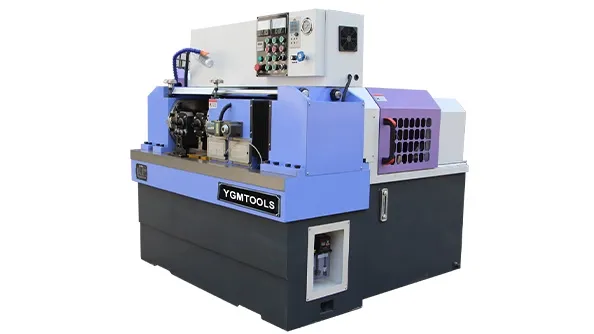
-
 Afrikaans
Afrikaans -
 Albanian
Albanian -
 Amharic
Amharic -
 Arabic
Arabic -
 Armenian
Armenian -
 Azerbaijani
Azerbaijani -
 Basque
Basque -
 Belarusian
Belarusian -
 Bengali
Bengali -
 Bosnian
Bosnian -
 Bulgarian
Bulgarian -
 Catalan
Catalan -
 Cebuano
Cebuano -
 Corsican
Corsican -
 Croatian
Croatian -
 Czech
Czech -
 Danish
Danish -
 Dutch
Dutch -
 English
English -
 Esperanto
Esperanto -
 Estonian
Estonian -
 Finnish
Finnish -
 French
French -
 Frisian
Frisian -
 Galician
Galician -
 Georgian
Georgian -
 German
German -
 Greek
Greek -
 Gujarati
Gujarati -
 Haitian Creole
Haitian Creole -
 hausa
hausa -
 hawaiian
hawaiian -
 Hebrew
Hebrew -
 Hindi
Hindi -
 Miao
Miao -
 Hungarian
Hungarian -
 Icelandic
Icelandic -
 igbo
igbo -
 Indonesian
Indonesian -
 irish
irish -
 Italian
Italian -
 Japanese
Japanese -
 Javanese
Javanese -
 Kannada
Kannada -
 kazakh
kazakh -
 Khmer
Khmer -
 Rwandese
Rwandese -
 Korean
Korean -
 Kurdish
Kurdish -
 Kyrgyz
Kyrgyz -
 Lao
Lao -
 Latin
Latin -
 Latvian
Latvian -
 Lithuanian
Lithuanian -
 Luxembourgish
Luxembourgish -
 Macedonian
Macedonian -
 Malgashi
Malgashi -
 Malay
Malay -
 Malayalam
Malayalam -
 Maltese
Maltese -
 Maori
Maori -
 Marathi
Marathi -
 Mongolian
Mongolian -
 Myanmar
Myanmar -
 Nepali
Nepali -
 Norwegian
Norwegian -
 Norwegian
Norwegian -
 Occitan
Occitan -
 Pashto
Pashto -
 Persian
Persian -
 Polish
Polish -
 Portuguese
Portuguese -
 Punjabi
Punjabi -
 Romanian
Romanian -
 Russian
Russian -
 Samoan
Samoan -
 Scottish Gaelic
Scottish Gaelic -
 Serbian
Serbian -
 Sesotho
Sesotho -
 Shona
Shona -
 Sindhi
Sindhi -
 Sinhala
Sinhala -
 Slovak
Slovak -
 Slovenian
Slovenian -
 Somali
Somali -
 Spanish
Spanish -
 Sundanese
Sundanese -
 Swahili
Swahili -
 Swedish
Swedish -
 Tagalog
Tagalog -
 Tajik
Tajik -
 Tamil
Tamil -
 Tatar
Tatar -
 Telugu
Telugu -
 Thai
Thai -
 Turkish
Turkish -
 Turkmen
Turkmen -
 Ukrainian
Ukrainian -
 Urdu
Urdu -
 Uighur
Uighur -
 Uzbek
Uzbek -
 Vietnamese
Vietnamese -
 Welsh
Welsh -
 Bantu
Bantu -
 Yiddish
Yiddish -
 Yoruba
Yoruba -
 Zulu
Zulu
types of thread rolling machine service
Types of Thread Rolling Machine Services
Thread rolling is a process used in manufacturing to create threads on a workpiece without the need for cutting. Instead, it relies on deforming the metal to form threads, which often results in stronger connections and improved surface finishes. To ensure the efficiency and accuracy of this process, various types of thread rolling machine services are available. In this article, we'll discuss the different types of thread rolling machines and their respective services.
1. Flat Die Thread Rolling Machines
Flat die thread rolling machines utilize two flat dies to form threads on cylindrical workpieces. These machines are commonly configured for high production rates, especially for longer lengths of thread. The services associated with flat die machines include machine setup and calibration, routine maintenance, and troubleshooting. Manufacturers often offer specialized services to ensure these machines operate at optimal efficiency.
2. Rotary Thread Rolling Machines
Rotary thread rolling machines are designed for the production of threads on smaller parts. The process employs rotating dies that compress the material around the workpiece, forming the desired thread pattern. Services for rotary thread rolling machines often include program development for new threading specifications, operator training for efficient machine use, and updating software for modern threading techniques.
3. In-Die Thread Rolling Machines
In-die thread rolling machines are integrated into the production line, offering an efficient way to produce threads as part of a larger process. These machines allow for a seamless transition from raw material to finished product. Serving businesses that require high-volume production, in-die services focus on customization, ensuring compatibility with existing systems, and providing ongoing support to address wear and repair issues promptly.
types of thread rolling machine service

4. Vertical Thread Rolling Machines
Vertical thread rolling machines offer an alternative design that works well for specific applications, particularly in producing shorter threads. These machines can handle a variety of materials and sizes, making them adaptable for different manufacturing needs. Service offerings for vertical machines include load testing, performance optimization, and routine inspections to ensure adherence to safety standards.
5. Service and Maintenance
Regardless of the type of thread rolling machine, regular maintenance is crucial for maximizing production efficiency and minimizing downtime. This service typically involves cleaning, lubrication, parts replacement, and calibration checks. Many manufacturers also offer training programs for maintenance staff to empower them with the knowledge needed to perform routine checks and minor repairs.
6. Custom Thread Rolling Services
In addition to standard machinery, many companies provide custom thread rolling services. This can include the design and manufacture of unique thread profiles or sizes that may not fit standard machine capabilities. Custom services often encompass consultation for specific project needs, prototyping to ensure precision, and flexible production runs to accommodate varying order sizes.
Conclusion
The world of thread rolling machine services is diverse, offering a variety of options to meet different manufacturing needs. From flat die and rotary machines to in-die solutions, each type comes with its own set of specialized services to ensure optimal performance. As industries continue to evolve, the ability to provide tailored solutions will be essential in meeting the demands of modern manufacturing. Staying informed about the latest advancements in thread rolling technology and maintenance practices will position companies to leverage these machines effectively, ensuring quality and efficiency in their production processes.
